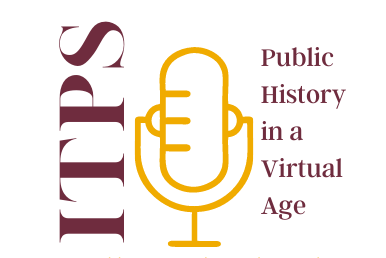
Welcome back to the ITPS Podcast! You can listen to Season 3 and subscribe to the podcast here.
The New-York Historical Society’s Center for Women’s History is pleased to partner with the ITPS (Institute for Thomas Paine Studies) at Iona University for the third season of Public History in a Virtual Age. In the first half of the season, co-hosts Dr. Kellen Heniford, historical consultant and formerly of the ITPS, and Jeanne Gutierrez, Curatorial Scholar in Women’s History, will interview curators, educators, and scholars at the New-York Historical Society to explore the many ways in which New York’s first museum presents women’s history and gender history to the public. The second half of the season will focus specifically on how public historians in and around New York City address the history of women who are underrepresented in museum and archival collections, with a focus on enslaved women, Indigenous women, and immigrant women.
Public History in a Virtual Age, Season 2
Season 2 of the ITPS Podcast is hosted by Dr. John C. Winters. John is the ITPS Research Associate in New York History and Assistant Professor of History at the University of Southern Mississippi. As a public historian, John has nearly ten years of experience in historic homes and public history institutions. You can find him at johncwinters.com and on Twitter @wintersjohnc.
Public History in a Virtual Age, Season 1
.
Each episode in Season 1, hosted by Dr. Lindsay Chervinsky, features two experts in their field about their projects. The episodes consider the challenges and benefits of that type of public history and what it contributes to the broader public. This podcast also has a special focus on the virtual, given the challenges imposed by the global pandemic in 2020. As public historians and public history sites cope with COVID-19, the experts will share some of the unique digital tools employed by practitioners to inspire their colleagues and history enthusiasts. Listen to Season 1 and subscribe to the podcast.
Public Health-Public History
The year 2020 demonstrated that public health, broadly defined, cannot be separated from public history. Our host, Dr. Lindsay M. Chervinsky, interviews a series of experts on public health, disease, education, slavery, and race over the course of three episodes. They discuss how education and cultural institutions can interpret the history of disease, medicine, and racism as interrelated issues that continue to challenge the nation today. Listen to all three episodes and read the show notes.
